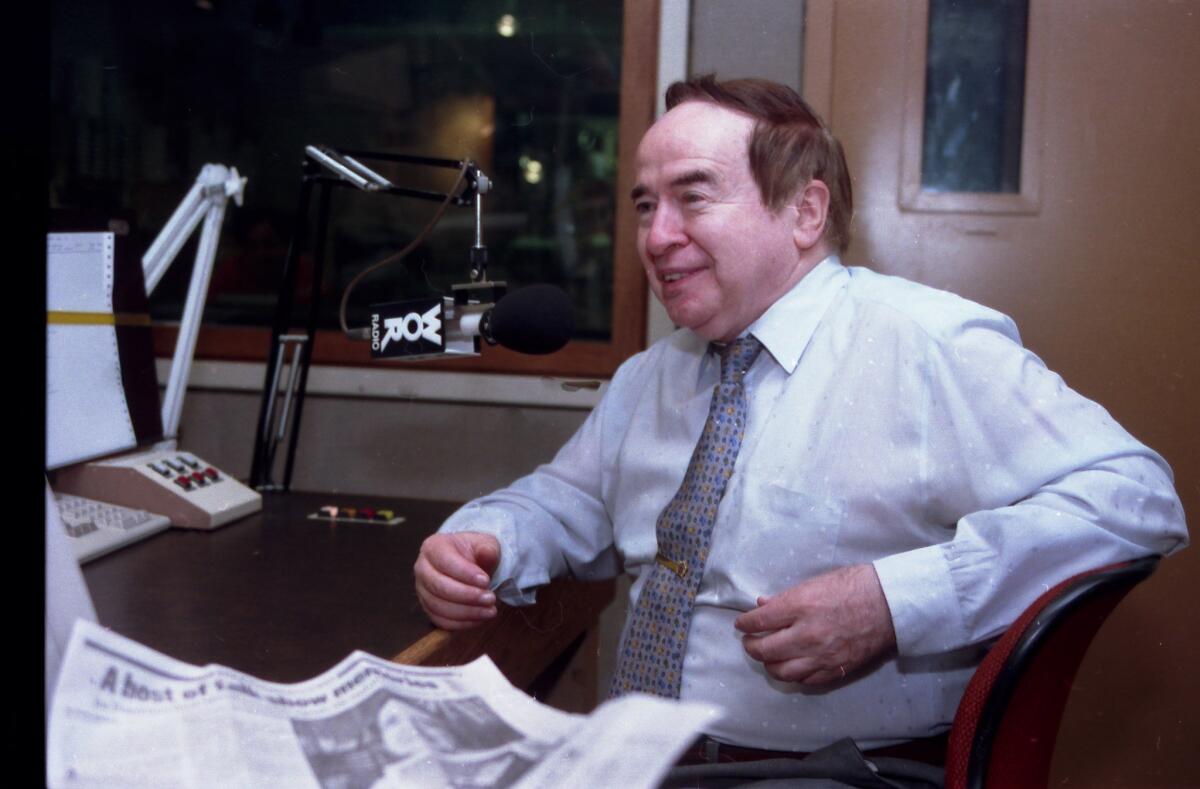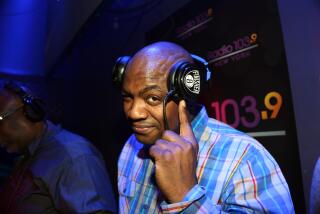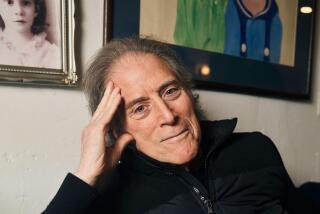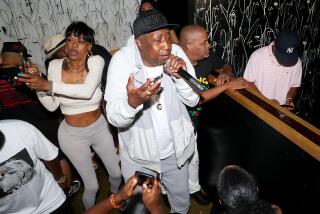Joe Franklin dies at 88; interviewed ‘plate twirlers’ and stars

Joe Franklin, an institution of New York City broadcasting and self-crowned “king of nostalgia” who bantered on radio and television with celebrity A-listers and D-listers alike, has died. He was 88.
He died Saturday at a hospice in Manhattan, according to Steve Garrin, his producer and longtime friend. The cause was prostate cancer.
Like many entertainers he interviewed, Franklin was cagey about his age, often shaving off a few years by listing his birth year as 1928. After divulging his “real” 1926 birth date in his 1995 memoir, Franklin began saying he was born in 1929.
In an on-air career that began in the heyday of radio and continued into podcasting, Franklin took credit for discovering or giving early exposure to Al Pacino, Bette Midler, Barbra Streisand, Michael Jackson, Garth Brooks and Woody Allen.
He interviewed Andy Warhol and Howard Stern, William F. Buckley and Abbie Hoffman, Jack LaLanne and Muhammad Ali, Fred Astaire and John Wayne, plus, as he put it, “plate twirlers, muscle men, politicians, rock-and-rollers, scribes, rocket scientists” and “stars, wives of stars, sons of stars, daughters of stars and mothers-in-law of stars.”
That “eclectic mix” of guests was his show’s unique appeal, Franklin said in a 2011 interview with Bloomberg Radio: “I had Ronald Reagan on with the Dancing Dentists. I had Margaret Mead on with the man who whistled through his nose. I never had a talent coordinator -- I could feel it in my mind, the chemistry.”
Actor Billy Crystal watched Franklin’s talk show as a kid and impersonated him on NBC’s “Saturday Night Live” in the 1980s, sporting a comb-over, a loudly patterned sport jacket and his best imitation of Franklin’s machine-gun delivery and I’ve-seen-this-all-before tone.
Most recently, Franklin contributed interviews and minute-long commentaries -- on Errol Flynn, “I Love Lucy,” the Beatles -- to Bloomberg Radio. His final interview, which was recorded earlier this month, aired on the day he died. It was with Joe Coffey, a retired New York detective turned author.
Franklin was born Joseph Fortgang on March 9, 1926, in the Bronx, the first of two children of Martin Fortgang and the former Anna Heller, both offspring of Austrian-Jewish immigrants.
His father sold pushcarts and bags to shoppers on Manhattan’s East Side and moved his family there to the neighborhood known as Yorkville. Franklin said his father called him “crackpot” because of his passion for vaudeville, silent movies and early radio. Franklin went to the movies most days with his friend Bernard Schwartz, who would later take the name Tony Curtis when he became an actor.
Drafted into the U.S. Army after high school, Franklin was found to have flat feet and sent home from training in Texas.
At 19, he was hired as a writer for Kate Smith’s radio variety show. At WNEW-AM he picked records for Martin Block’s long-running show, “Make- Believe Ballroom.” After a few months, Franklin got his own show, “Vaudeville Isn’t Dead.” He also hosted “Main Street Memories” and “Antique Record Shop” on WMCA.
He moved to television in 1951, debuting “Joe Franklin -- Disk Jockey” daytime on New York ABC affiliate WJZ-TV. The following year he introduced “Joe Franklin’s Memory Lane,” a Sunday-night show offering clips of classic movies. WJZ became WABC-TV in 1953, with Franklin continuing as a daytime fixture.
He took “Joe Franklin’s Memory Lane” to WOR-TV in 1962, eventually dropping the silent-film clips and becoming “The Joe Franklin Show.” He was a mainstay for three decades on WOR, during which time it moved from New York City to Secaucus, N.J., and became WWOR.
Though he played himself in Allen’s “Broadway Danny Rose” and in “Ghostbusters,” both in 1984, Franklin’s specialty was deflecting the fame, deserved or not, to those who visited his show.
“I’d like to be remembered as somebody who was kind and nice and gentle, and suppressed any knowledge I might have, if I had any, in order to let the guest shine,” he said in 2011. “Maybe that’s one reason why they always came back.”
Survivors include a son, Bradley Franklin, from his marriage to Lois Meriden, a onetime performer with Sally Rand’s burlesque-style “fan dancers”; a sister, Margaret Kestenbaum; two grandchildren; and his longtime companion, Jodi Fritz.
Arnold writes for Bloomberg News.
More to Read
Start your day right
Sign up for Essential California for the L.A. Times biggest news, features and recommendations in your inbox six days a week.
You may occasionally receive promotional content from the Los Angeles Times.






